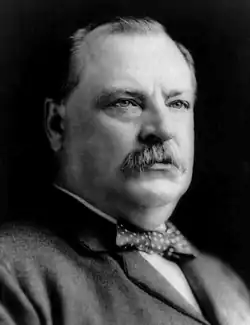| Main page | Showcase | Project |
Introduction
Conservatism is a cultural, social, and political philosophy that seeks to promote and to preserve traditional institutions, customs, and values. The central tenets of conservatism may vary in relation to the culture and civilization in which it appears. In Western culture, depending on the particular nation, conservatives seek to promote a range of social institutions, such as the nuclear family, organized religion, the military, property rights, and monarchy. Conservatives tend to favour institutions and practices that guarantee social order and that evolved gradually.
Edmund Burke, an 18th-century politician who opposed the French Revolution but supported the American Revolution, is credited as one of the main theorists of conservatism in the 1790s. The first established use of the term in a political context originated in 1818 with François-René de Chateaubriand during the period of Bourbon Restoration that sought to roll back the policies of the French Revolution and establish social order.
Conservative thought has varied considerably as it has adapted itself to existing traditions and national cultures. Thus, conservatives from different parts of the world—each upholding their respective traditions—may disagree on a wide range of issues. Historically associated with right-wing politics, the term has been used to describe a wide range of views. Conservatism may be either more libertarian or more authoritarian; more populist or more elitist; more progressive or more reactionary; more moderate or more extreme. (Full article...)
Selected article

Selected quote
To be conservative, then, is to prefer the familiar to the unknown, to prefer the tried to the untried, fact to mystery, the actual to the possible, the limited to the unbounded, the near to the distant, the sufficient to the superabundant, the convenient to the perfect, present laughter to utopian bliss.
— Michael Oakeshott, On Being Conservative (1962)
Selected image

Charlton Heston (1923 – 2008) was an American actor of film, theatre and television. Heston is known for heroic roles in films such as El Cid, The Ten Commandments, Planet of the Apes and Ben-Hur, for which he won the Academy Award for Best Actor. He also is well known for appearing in the films Touch of Evil directed by Orson Welles and The Greatest Show on Earth, which won the Academy Award for Best Picture.
Heston was also known for his political activism. In the 1950s and 1960s he was one of a handful of Hollywood actors to speak openly against racism and was an active supporter of the Civil Rights Movement. Initially a moderate Democrat, he later supported conservative Republican policies and was president of the National Rifle Association from 1998 to 2003.
Photo: National Archives
Did you know...
- ... that the film Ronald Reagan called "the worst picture I ever made" inspired Jerry Parr to join the Secret Service, and that Parr saved President Reagan's life during the 1981 assassination attempt?
- ... that in 1952, after giving the Checkers speech, Richard Nixon dictated a telegram resigning as Dwight D. Eisenhower's running mate, but his campaign manager Murray Chotiner ripped it up unsent?
- ... that Canadian Conservative Party candidate Bernard Trottier won a seat in the 41st Canadian Parliament by defeating the incumbent Michael Ignatieff, the leader of the Liberal Party and leader of the Official Opposition, in the 2011 federal election?
Selected anniversaries in November
- 1790 – Edmund Burke publishes Reflections on the Revolution in France, which influenced conservative and classical liberal intellectuals in the 20th century.
- 2002 – the Justice and Development Party wins a landslide victory in the Turkish general election
- 1980 – Ronald Reagan defeats Jimmy Carter in the presidential election (map of results pictured) and becomes the 40th President of the United States.
- November 8th
- 2016 – Donald Trump defeats Hillary Clinton in the presidential election (map of results pictured) and becomes the 45th President of the United States.
Topics
Associated Wikimedia
The following Wikimedia Foundation sister projects provide more on this subject:
-
 Commons
Commons
Free media repository -
 Wikibooks
Wikibooks
Free textbooks and manuals -
 Wikidata
Wikidata
Free knowledge base -
 Wikinews
Wikinews
Free-content news -
 Wikiquote
Wikiquote
Collection of quotations -
 Wikisource
Wikisource
Free-content library -
 Wikiversity
Wikiversity
Free learning tools -
 Wiktionary
Wiktionary
Dictionary and thesaurus